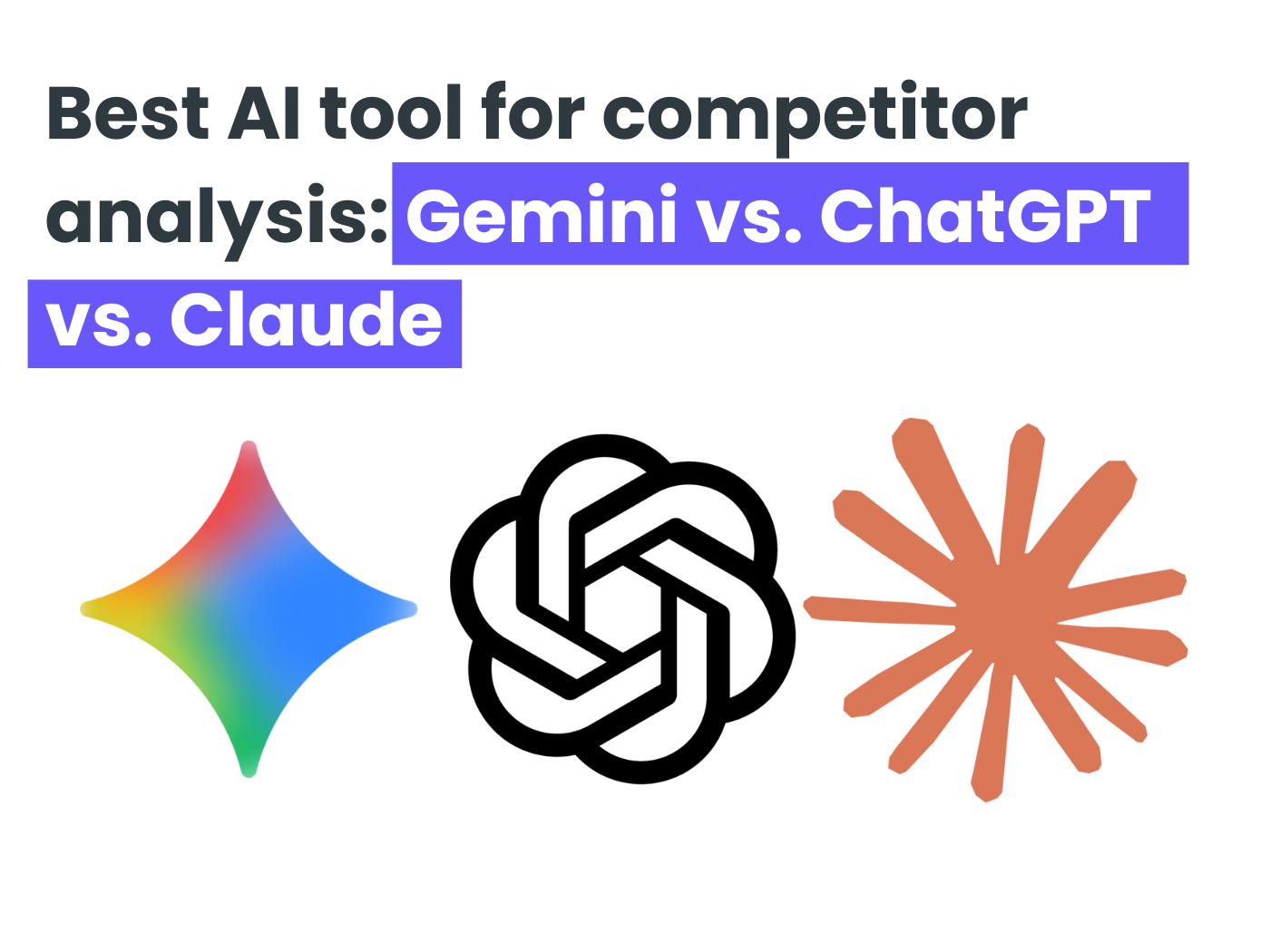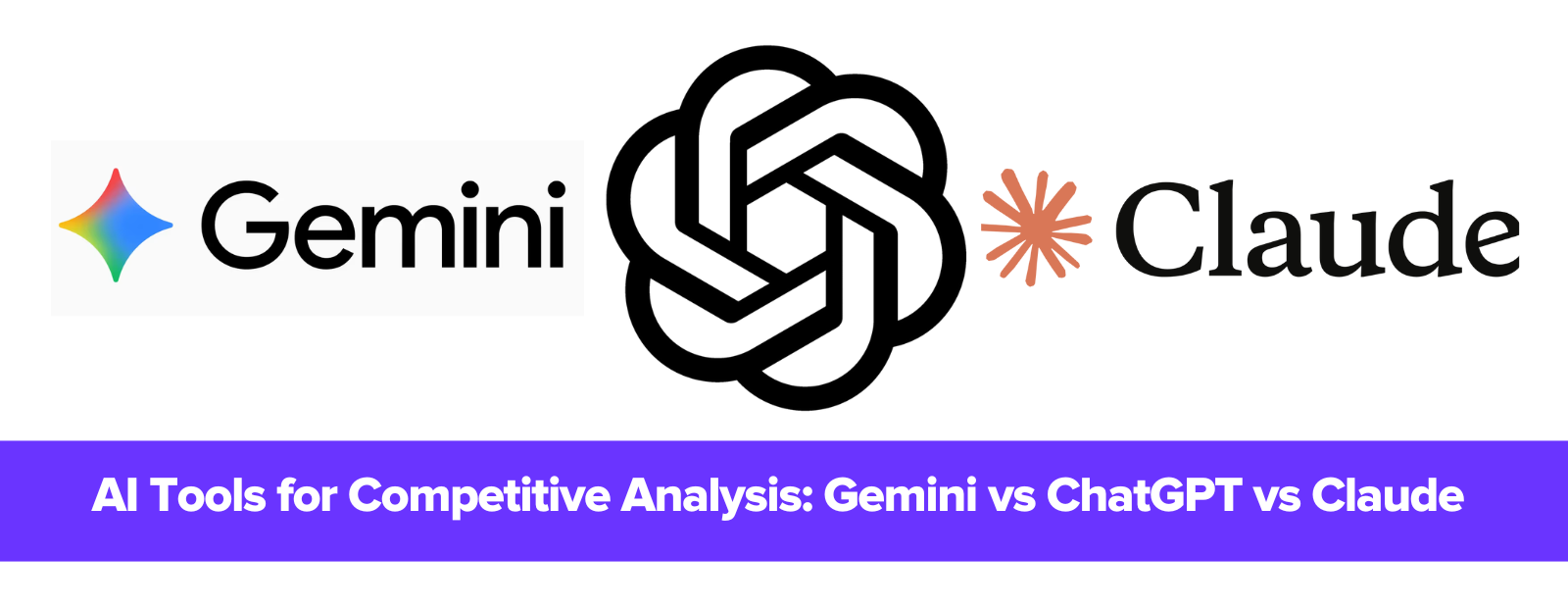AI is here to stay - or it can help us achieve so many things.
Yes, this might be peak AI chatbot saturation–or so it seems–with so much articles & tutorials about ChatGPT and its competitors Claude, Perplexity, Gemini, DeepSeek, and more.
It looks like AI is taking over many facets of our productive (and even unproductive) lives.
We use it to create emails, plan trips, answer our questions, and analyze books.
If we know how to use it.
Marketers have also embraced AI.
For good reason.
AI assistants simply make our lives easier. LLMs can create images we can use for campaigns, taglines we can use for ads, and even reports you can use for work presentations.
I personally use it a lot to proofread and clarify some of our content.
But obviously, not all AI assistants are made the same.
In this article, I will evaluate today three of the best AI assistants in the game today: ChatGPT, Claude, and Google’s Gemini.
I'll do it with a specific goal in mind:
Let’s see how these three compare against each other when used for competitive tracking and analysis, an essential part of digital marketing.
If you want to speed up your competitor analysis, one of these tools will get the job done better than the others.
However, to cut to the chase, AI tools like ChatGPT, Claude, and Gemini are not powerful enough for competitive analysis.
They will hallucinate, make up some data, or give you very generic answers, where you need specific and accurate data.
For this type of research, you need a dedicated competitor tracking tool like Panoramata for a better understanding at what techniques and strategies your competitors are using for their marketing.
Panoramata's competitive intelligence features and integrated AI capabilities are exactly what you need:
- It can uncover hidden parts of a marketing strategy such as display ads, email newsletters, and landing pages.
- It can analyze your competitors' recent campaigns based on real newsletters and ads
- It has the data, the creatives and the copy your competitors are using to help you identify trends
- You can monitor all your competitors automatically in one single platform, in an organized way
- Panoramata Insights AI Agent helps you identify key recent campaigns and anticipate what your competitors are up to
- You can use the AI features to find the perfect examples for any inspiration need you might have
Sign up for free to learn more about Panoramata and how it can boost your competitor tracking game.
At a glance
If you want an AI that looks for existing data, but will sometimes hallucinate: ChatGPT
If you need an AI that hallucinates often, but can gather more data and deliver quick answers: Gemini
If you prefer a comprehensive competitor tracking tool specializing in marketing intelligence: Panoramata
If you are interested in a copywriting assistant, and not really a competitor tracker: Claude
Competitive Analysis AI Tool Comparison: ChatGPT, Claude, and Gemini
ChatGPT: the multitasker - only hallucinate sometimes
tldr; it's great if you want to follow up with creative tasks + it does a great job at searching valid data. Will only halliucinate sometimes.
ChatGPT hardly needs an introduction. This AI behemoth is taking over our digital lives, but how does it compare to other AI tools when it comes to marketing?
In our opinion, these are the strengths and weaknesses of ChatGPT.
Strengths
ChatGPT has the largest market share and number of users, which means you can tap into a big community’s knowledge and workflows. It also has an extensive plugin ecosystem and third-party integrations for marketing tools.
Apart from that, ChatGPT is ideal for content creation as it can generate images and video based on user prompts and the quality is fairly consistent. The cherry on top is the DALL-E integration which unlocks even more visual content possibilities.
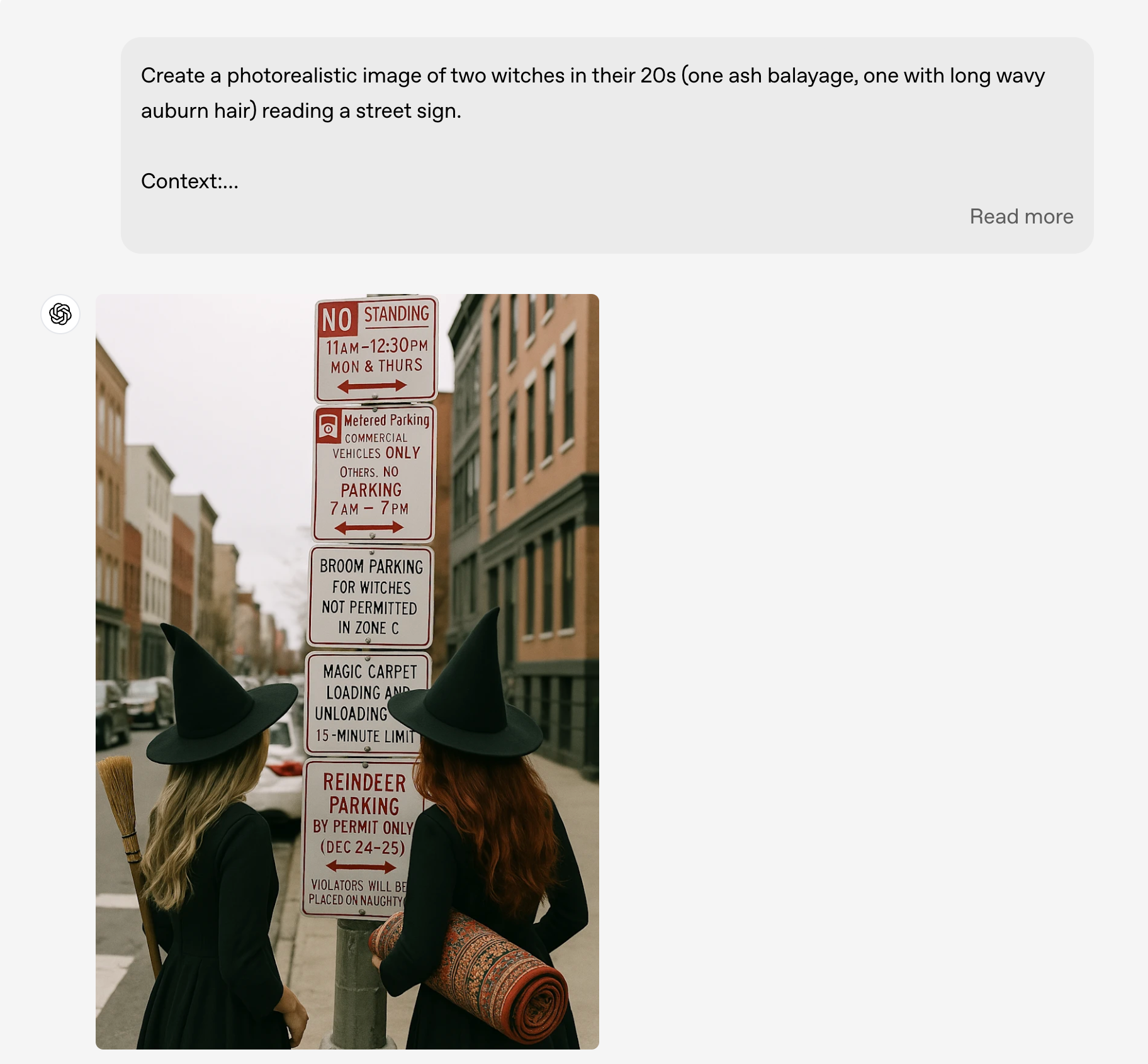
In the same vein, ChatGPT excels at churning out and iterating on content ideas. This makes it well suited for social media content creation and campaign brainstorming.
For competitor analysis in particular, ChatGPT reigns in terms of competitive research organization. It’s amazing for:
- Creating structured competitive comparison documents
- Synthesizing research from multiple sources
- Visual organization of competitive data
- Concocting proven workflows for team competitive briefings
It also delivers solid analysis using competitor frameworks and performance metrics. Its integration with other intelligence tools through APIs is a plus.
ChatGPT has the largest market share and number of users, which means you can tap into a big community’s knowledge and workflows.
Limitations
ChatGPT tends to speak in a very stilted AI language. ChatGPT clearly struggles with tone of voice when creating written text. It can sound too optimistic and, well, robotic.
That means its content can skew generic if you don’t learn how to prompt it well.
The quality of ChatGPT’s output rests on the user’s prompting skills, which you need to learn first. Though the tool is intuitive to use, you need to master prompting to get the most out ChatGPT for marketing.
Also, though ChatGPT can search the web in real time, its answers still might not be accurate, unlike Gemini, which excels at real time updated information. It’s better at organizing competitor data that you feed into it.
Best Use Cases
ChatGPT is best suited for:
- Social media content creation and campaign ideation
- Visual content creation combined with copywriting
- Marketing automation workflows and integrations
- Rapid prototyping of marketing concepts
- Team collaboration on marketing projects (due to widespread familiarity)
- Cost-effective content production at scale
Claude: the copywriting assistant
Claude is the young upstart who is going after ChatGPT’s throne. Is it a formidable rival as a competitor analysis tool?
Let’s find out.
Strengths
Claude is a no brainer AI tool of choice for two groups: writers and coders. It can adapt different styles of writing and can mimic your writing style if you give it examples to draw from. It also sounds very natural–the opposite of ChatGPT’s tone of voice.
If deep analysis is what you need, Claude is your friend. It can break apart competitor information that you give it and let you know what it really means.
However, it goes beyond that. Claude is great for strategic planning, especially if you want to know your competitor’s positioning. This tool can understand competitive landscapes and give you insights and well thought-out recommendations that you can apply to your marketing strategy.
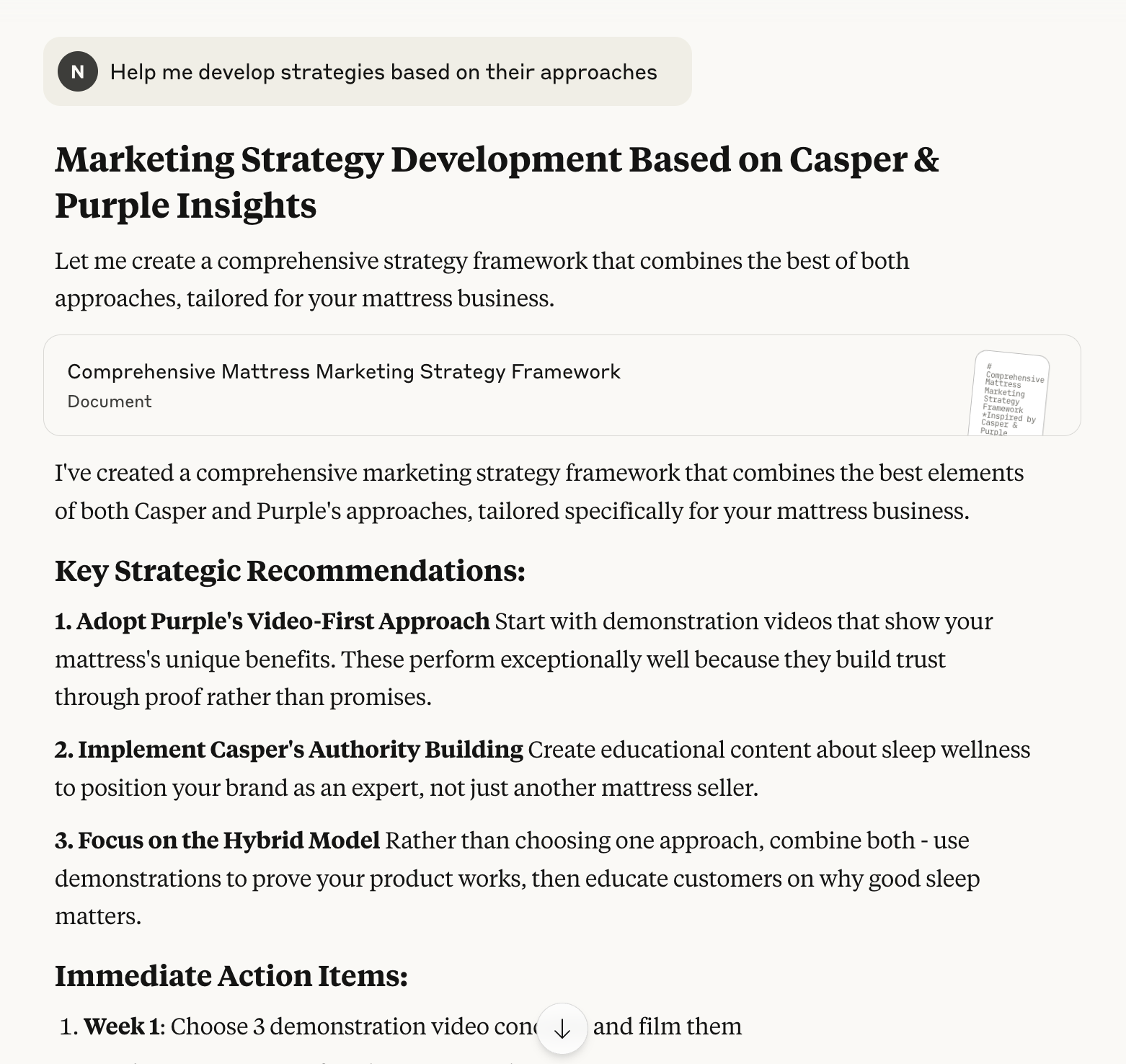
If deep analysis is what you need, Claude is your friend. It can break apart competitor information that you give it and let you know what it really means. It can also spot trends that you might have missed and gives ideas for how you can respond to your competitor’s positioning and strategy.
For example, Claude can give you conversion rate optimization ideas after scanning your competitor’s website. Additionally, when I asked it to create a content calendar for a DTC makeup brand, it produced a very detailed plan complete with copy ideas.
Limitations
Compared to ChatGPT, Claude has a smaller ecosystem. That means, it has
- Fewer third-party integrations and plugins
- Smaller community of users sharing marketing templates and workflows
- Less extensive documentation and tutorials for marketing use cases
- Fewer proven marketing automation workflows
Though Claude is great for writing and coding, it has limited multimodal capabilities. It cannot interpret different modes outside of written text. For example, it can’t generate or edit images or interpret videos (which can be helpful in competitive analysis).
This can be a make-or-break factor because visual assets are essential in marketing. If you need social media graphics, infographics, promotional pictures, logos, and other advertising materials, you have to look elsewhere.
Visual analysis is limited for Claude as well, so it cannot detect design elements in competitor websites, for example. You would have to do that work using other tools.
Lastly, while Claude has a web search feature, it lacks real-time data from search engines and is not as integrated with the web as Gemini is (thanks to Google’s ecosystem). That means it cannot track current competitor pricing and promotions, monitor website changes in real time, or get you up to speed on the latest market trends or news.
Best use cases
Claude is best suited for:
- Understanding competitor positioning
- Planning how to differentiate your business
Gemini: the Google agent - hallucinates often, but can access more data
Google Gemini is like a real-time spy for competitive analysis. With this tool, it’s all about data–Google search data, that is.
Strengths
Gemini’s strongest advantage is its integration with Google and high speed. It can answer queries almost in a blink of an eye as it can tap into Google’s search engine data. It’s also the most up-to-date AI assistant. It can return factual results of current events as they happen.
You can be assured that Gemini has fast and accurate data that works across multiple platforms that you might already be using.
Gemini is also great for working with large amounts of data. It has a long context window (one million tokens) so you can feed it case studies, research papers, and other files without worrying about running out of memory.
If you’re already working with Google Docs, Gmail, Google Sheets, and other tools in Google’s ecosystem, then you might prefer Gemini for its seamless integration with those applications.
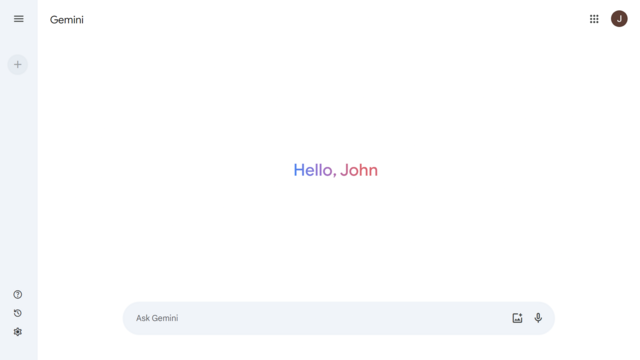
You can be assured that Gemini has fast and accurate data that works across multiple platforms that you might already be using. Plus, because it’s part of Google, you can use different languages thanks to its multilingual abilities.
And if you’re running a business with a brick and mortar site or are up against local competitors in your area, Gemini can give you better marketing insights.
Aside from that, just like ChatGPT it has multimodal capabilities, making it an ideal partner for analyzing images and videos.
All the above make a very strong case for Gemini’s prowess in competitive analysis tasks.
Limitations
However, as appealing as Gemini might be, it has its limitations. Firstly, its writing abilities are inferior to ChatGPT and Claude. It won’t sound as conversational as ChatGPT or as natural as Claude.
If you’re not in the Google ecosystem, you might not find Gemini all that appealing or useful, as its unique value proposition is its accuracy and integration with Google’s search intelligence. Gemini thrives the best in Google’s setup.
Best use cases
Gemini is best suited for:
- Youtube Transcripts
- Deep Research
- SEO content strategy based on current search data
- Fact-checking and data verification for marketing claims
Verdict & Best choice: Why regular AI tools are insufficient for competitive analysis
That being said, AI tools like ChatGPT are not suited for serious competitive analysis.
These tools lack the following:
- Deep contextual understanding of marketing strategies
- Ability to analyze complex cross-channel relationships
- Ironclad guarantee that it won’t use your data
- Access to competitor information not readily found on the web (email campaigns, landing pages, social media ads, SMS, etc.)
- Genuine real-time tracking of competitor activity
- Industry benchmarks
Effective competitive analysis requires an all-rounder solution. That means:
- Real time monitoring
- Strategic recommendations
- Data visualization and reporting
For these multiple use cases and more, you need to use several AI tools in conjunction with each other. However, that can get time-consuming and cost-prohibitive as your brand scales.
Panoramata is the best option that can tackle all your competitor tracking needs at a reasonable price.

It outperforms basic chatbots because of its specialized functionalities.
It’s made for marketing agencies and brands, not just the average user.
So if you want the ultimate tool that combines the best of Gemini, Claude, and ChatGPT, try out Panoramata for free below.
FAQs
Which AI competitive analysis tool is best for businesses?
Panoramata is the best solution as it's built specifically for competitive analysis, with the ability of having your own AI agents and chatbots, but with real marketing data and your campaigns' competitors.
Can these AI tools replace dedicated competitive intelligence platforms?
Not really -- they lack specialized features like real-time competitor email tracking, cross-channel monitoring, and industry benchmarks that dedicated platforms provide.
Which tool should I choose if I only need competitor analysis, not content creation?
Panoramata is your best choice - you will instantly be able to track all your competitors in a dedicated dashboard, benchmark yourself, get the right inspiration, and more!


